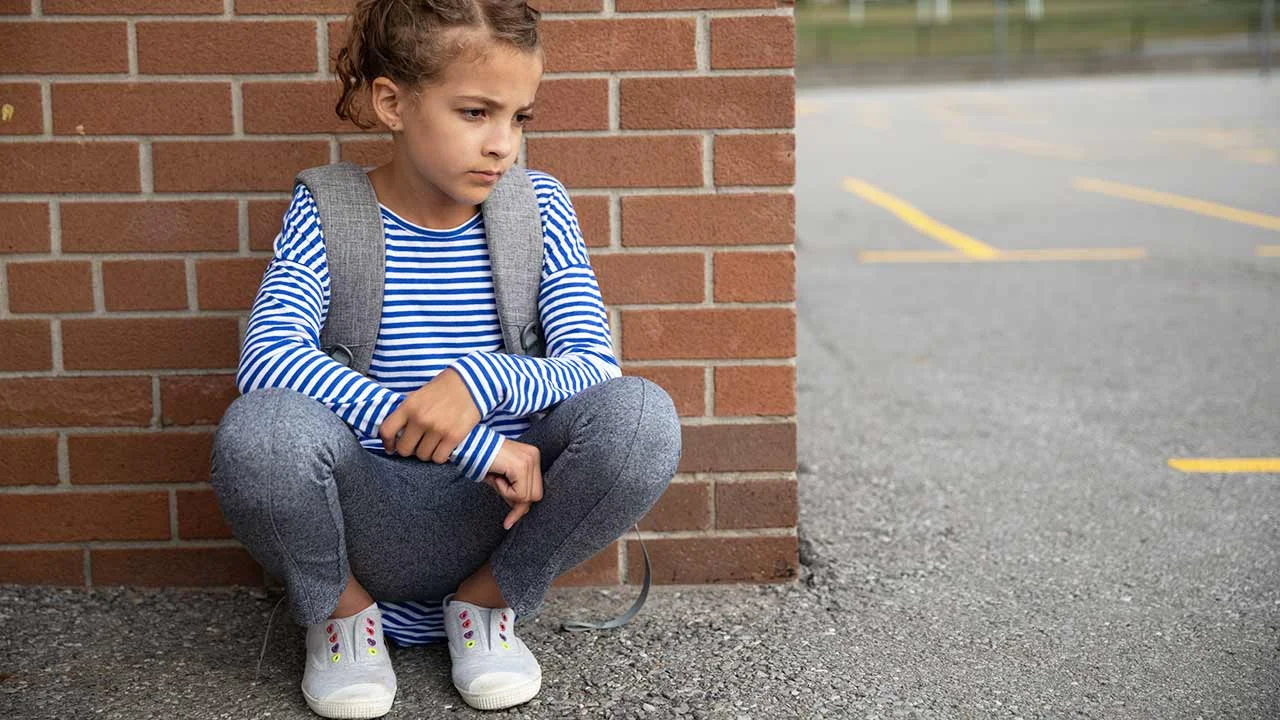For every child, starting school is a crucial step, but it can be more challenging for a child with autism. Moving from home to school needs smart planning and preparing to have an easy and positive experience.
The purpose of this guide is to provide parents and caregivers with practical strategies and insights that will help their autistic children adjust in the school environment.
Understanding Autistic Child For Entry To School
While getting ready for school implies more than just learning, it also involves emotional intelligence as well as social and adaptive skills required in classroom environments by autistic kids. Most parents may wonder if their child should start this new phase or not.
In order to answer these concerns, you need to know your children’s individual needs or abilities very well. Additionally, you can make an informed decision about your child’s preparedness for school by considering developmental milestones alongside personal capacity.
Are There Common Concerns About School Readiness?
Parents of children with autism often worry about whether their child will manage to handle the rigors of school. These concerns include social interaction difficulties, sensitivities to sensory stimuli and following routines.
To be fair, these fears are substantiated because unlike other children without autism, those who have it face some extra challenges.It is crucial for parents to get familiarized with these issues in order to deal with them at a tender age and make sure their kids can prosper in a learning institution.
Gauging the Preparedness of Your Child for Starting School
Determining whether your child is ready to start school is more than simply considering his/her age. This involves evaluating not only their age but also other factors relating to development like social skills and intellectual abilities. Indicators for readiness are being able to do as told simply, meeting one’s needs through effective communication and adjusting well when new schedules come up.
If significant deficits are observed in these areas then professional help may be required or even a special education placement should be considered. This evaluation should go on throughout the growth process of the child and require constant check-ins.
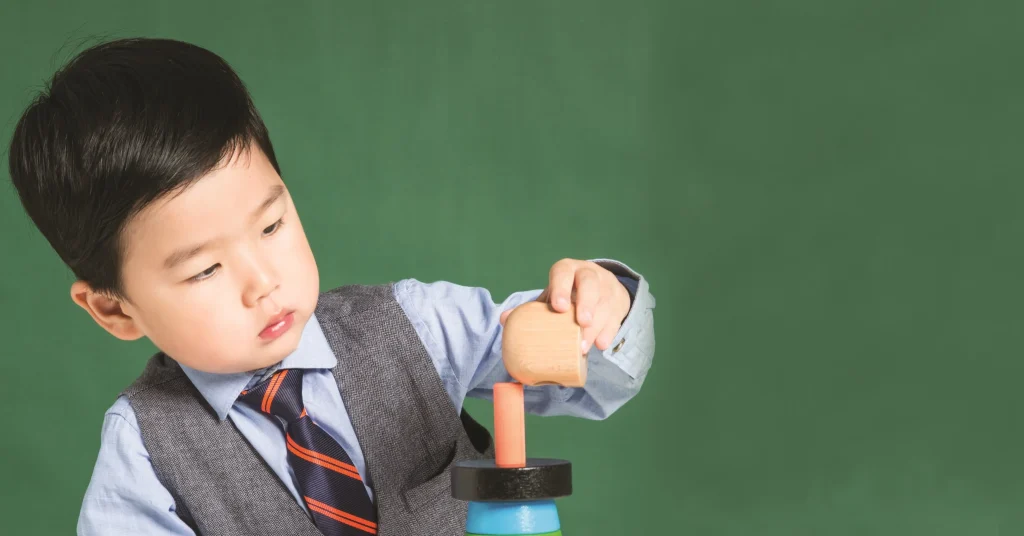
Creating a Transition Plan for School Entry
A well-designed transition plan is essential for assisting your autistic child to adapt to the new school’s environment. It can be very difficult to adjust to school, but having an elaborate plan will help your child through this process better.
This should outline how you can slowly introduce your child into school like attending orientation sessions, meeting with teachers and home practice of the school routines. Therefore, by taking step-by-step measures, you will be able to reduce nervousness and instill self-assurance in children as they prepare for this new chapter.
Importance of Transition Planning
Transition planning is particularly important for autistic children who often rely on predictability and routine. The strategy provided in the transition plan should therefore enable one transit smoothly into the new school setting thus reducing anxiety associated with such major changes in life.
In addition, the program must take into account sensory sensitivities, social skills and learning styles unique to a particular student. Henceforth, involving children while making decisions concerning them empowers them by giving a sense of control or agency during their new venture journey.
School Entry Assistance and Its Advantages
Several schools run what is referred to as an entry-to-school program that assists children with special needs, for instance autism, to have a smooth transition into educational settings. These programs often involve orientation sessions, visits to classrooms and meetings with support staff.
Your child’s participation in these programs can be very helpful, it will enable them to familiarize themselves with the school environment. Moreover, Parents get to know the school personnel, thus assuring that their child’s requirements are recognized and attended from day one.
Transition Planning Supports for Autistic Children
Professional assistance such as occupational therapists, speech therapists and behavioral specialists can be invaluable in transitioning your autistic child into school. They work on developing specific skills required for a successful learning experience like communication, social interaction and self-regulation.
They also give advice on how the school setting could be designed so that your child feels at ease while studying there. Hence collaborative efforts among parents, educators and therapists help achieve a supportive inclusive education for your kid.
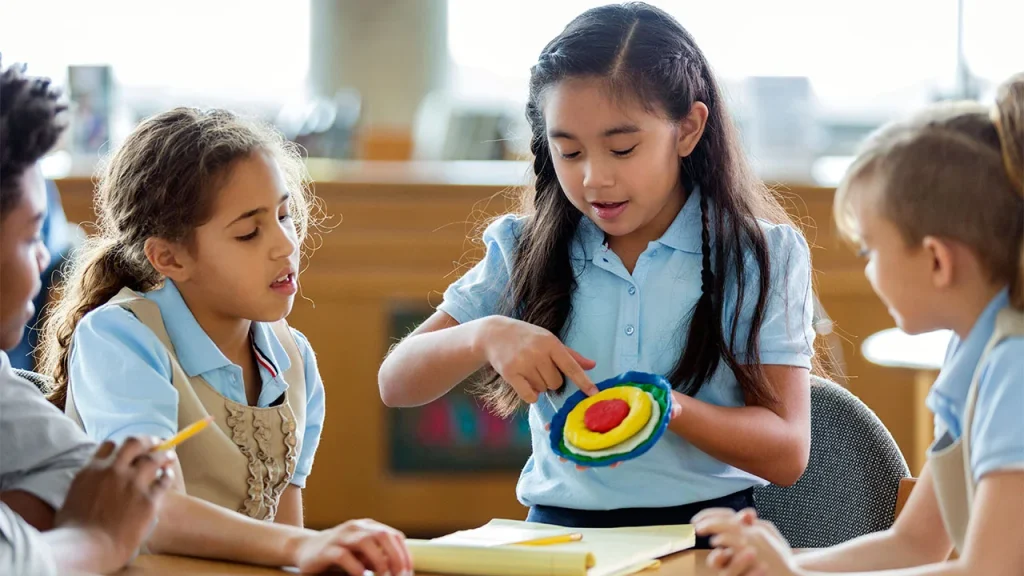
Getting Your Kid Ready Emotionally and Socially
School preparedness necessitates emotional and social readiness, particularly for autistic children. For these children, these abilities are often more demanding; nevertheless they can be trained to navigate the complexities of personal relations while at school.
The emotional preparation of your child and his/her social life includes instructing him/her on how to express emotions, interact with peers, as well as cope with any sensory challenges that may come about in class. This can help them develop resilience and self-assurance making them winners.
Using Social Stories to Lessen Anxiety
Social stories are an amazing way to aid autistic children in understanding and navigating through new experiences. These stories outline how a situation will unfold henceforth relieving anxiety by giving a clear structured framework.
If you make a social story about starting school it helps the child see the whole day from waking up till talking to classmates or teachers. With rereading and discussing this story repeatedly your kid is likely to get used to the idea of schooling before finally joining one thereby reducing fear during transition.
How to Develop Essential Adaptive Skills
For example, school readiness is facilitated by self- dressing, toileting and following regular daily routine. These skills might take more time and practice for autistic kids. This is why you must start teaching them as soon as possible before the child gets enrolled in a school.
In order to build these abilities in your child, you may use visual timetables, step-by-step directions and favourable encouragements. It happens because when these functions are established by you this will also aid to improve your child’s self-esteem towards the school day.
Role of Visual Schedules and Routine Practices
In particular, visual schedules and repetitive routines serve as sources of comfort for autistic children. They can be used to help your student prepare for or adjust to new things in the classroom environment.
For instance, at home you could create a visual schedule that mimics the one at school so that their transitions within activities can be practiced with them beforehand. Such an exercise will eventually result into a feeling of security and competence on the part of your kid around his/her new surroundings.
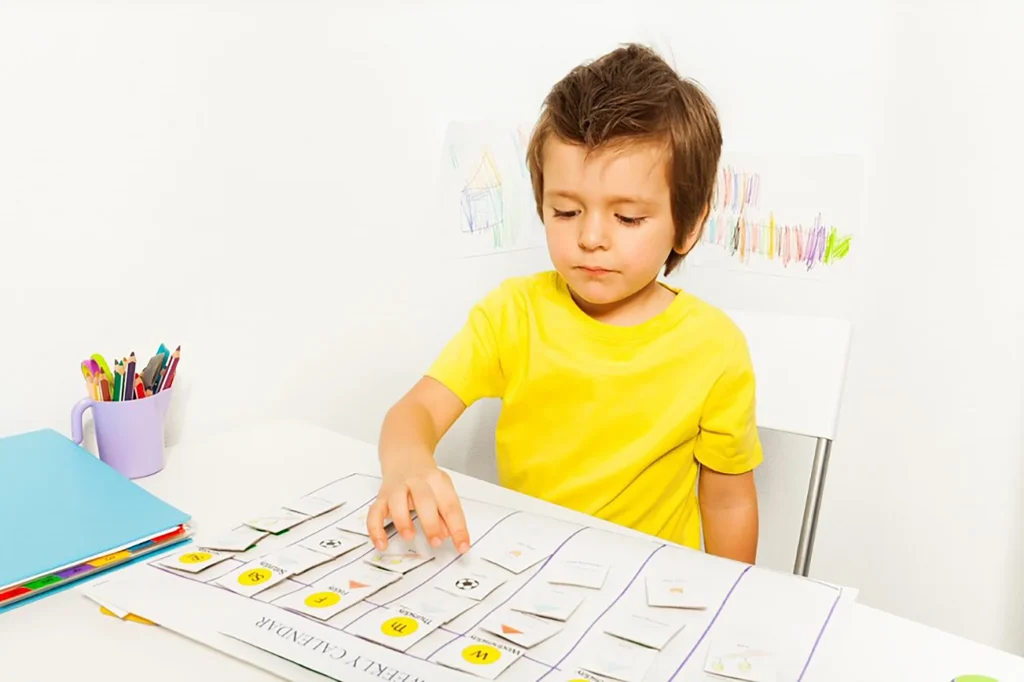
Introduction to School
It is possible to reduce anxiety and make children feel comfortable when they join schools by introducing them to schools before they start. To achieve this, one can carry out school visits, meet teachers and simulate the school routines at home.
The key reason behind this is for parents to help their children feel secure enough in these new environments which may be less friendly. As a result, you should try as much as possible to make the environment of your child’s school very welcoming and non-threatening so that your child will always be safe from day one.
School Visitation and Teacher Meeting
The best way of preparing a child for school is visiting the school before the academic year begins. During such visits, kids get themselves familiar with the layout of the institution, interact with teachers and staff who will handle them while there.
All these exposures help remove any mystery that could have been surrounding the entire schooling system making it easier for your child to digest. These trips are also ideal for parents who would like to share what they think would be best for their children through teachers as per individual needs right from beginning.
Becoming Acquainted with School Equipment and Routines
To help a child adjust to school, it is necessary to introduce him/her to the school equipment and routines. This process may consist of teaching them how to sit in their desk, use lockers, take out lunch boxes from bags among other actions like lining up for meals times, raising hands while one wants to ask or answer something, and staying quietly when listening to storytime.
You can make these activities more familiar and comfortable so that your child feels less lost in his new educational establishment. Child will be able to adapt quickly into the new school environment if you have been practicing them at home before going there.
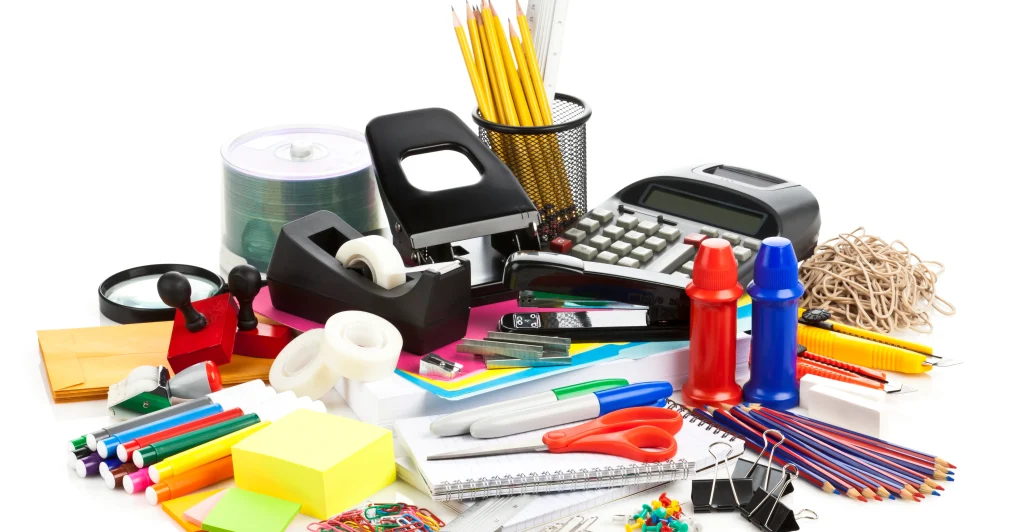
How To Support Your Child In A mainstream School
For some kids with autism going through mainstream education can be a good opportunity for learning as well as socializing though not without its own unique obstacles. Assisting a child through this system also means maintaining constant interaction with the tutor from time to time.
Creating an Individualized Learning Plan (ILP)
An ILP is a personal educational plan meant to suit the particular needs of your child. Building an ILP requires working together with teachers, special education personnel and other professionals who can help in identifying the child’s strengths and areas where they may require additional support.
The ILP should make known some specific goals, adjustments and tactics that will be beneficial academically and socially for your child. Regular review and adjustment of the ILP are important to ensure it continues to meet your child’s evolving needs as they progress through school.
How to Handle School Refusal
Refusing to go to school is a common problem among kids with autism spectrum disorder that most parents grapple with. This refusal is often caused by anxiety, sensory overload or problems interacting socially.
Addressing school refusal involves various approaches such as creating a calming morning routine, using positive reinforcement as well as working closely with the school staff in order to determine the triggers involved and mitigate them accordingly.
Hints to Help Your Child in Study and Social Life
Supporting your child academically and socially is more than just helping him/her with homework. This implies having a positive relationship with the school, making social interaction possible and reinforcing good conduct while at home. Ongoing communication between teachers is important for knowing when they need help with assignments.
The ILP should specify particular aims, adjustments and techniques so that your child becomes successful both academically and socially. Regularly reviewing as well as adjusting the ILP remains significant considering children grow up within the school system.
Tips for Supporting Your Child Academically and Socially
However, supporting your child academically and socially requires more than just helping them do their homework; it also involves building a healthy relationship between parents/caregivers and schools, better enabling interactions among peers as well as families while reinforcing commendable practices at homes.
It is important that teachers maintain constant contacts to know where these additional help may be needed from. Other times review ranges from the services which have been proposed in order to modify those based on the changes occurring in a student’s life within an educational institution.

After School Resumes, Support Continues
The necessity for support does not cease when your child commences school. Actually, it is very important that they continue to be supported so as to adapt to the school environment and enjoy learning and socializing in it.
It means you have regular talks with teachers, follow on their children’s progress and amend their lesson plans whenever necessary. Besides emotional support from home, any positive behavior should be encouraged by parents. In this way, a parent can help a child to attain an optimal performance in his/her new school.
The Need for Positive Reinforcement
Positive reinforcement is a powerful tool that encourages desirable conduct in children while making them feel capable of achieving success academically. This could involve appreciating the effort your kid puts into studying, giving small rewards for completing assignments or even motivating good actions using simple items such as stickers.
It also helps improve attitude towards school among children and boost self-esteem levels among these learners too. Therefore make sure you maintain consistency as well as rewarding every little breakthrough exhibited by your child. Thereby giving the best conditions possible through which your child can go through his period of schooling.
Monitoring Progress and Adjusting Plans
In order to ensure that your child’s needs in education are met and they are making advancements towards their targets, it is important to monitor their progress. This involves having regular communication with teachers, looking over their work and assessments, observing how they behave and what emotions they are going through.
If you identify any problems or if your child is not making the anticipated progress, there may be a need to adapt his/her learning plan or offer supplementary assistance. Being proactive as well as involved you can enable your child attain his/her fullest potential in school.
Conclusion
Preparing your Autistic Child For Entry To School is a complex ongoing process that calls for thorough planning, patience and support. Through understanding the unique needs of your child; developing a comprehensive transition plan; providing constant support both at home and school, one can help her through this milestone.
That being said every individual has got diverse nature from the others hence what works for one does not necessarily mean it will work on another one thus for this parent it is necessary to be flexible enough; open to adjustments; committed to assisting their children get ahead academically.
FAQs
Q: What is the ideal starting age for autistic kids in school?
A: It depends on how developed an autistic kid is. Some may be ready to start at the usual school beginning while others may require more time to acquire key skills.
Q: How can I assist my child with autism in making friends at school?
A: Let your child interact socially through fun days, social skills groups and things which they have interest in. Develop a culture of positive peer relationships together with the teachers.
Q: When my child is not doing well in school, what should I do?
A: If your child struggles with their studies, consult their tutor to see if there are any revisions that need to be made on their ILP. Further support like therapy or tuition classes can also help.
Q: Can you tell me about schools for autism children only?
A: Yes, there are schools exclusively for children with autism that offer unique programs and assistance. Look around where you stay so that you find out which option works best for your son or daughter.
Q: What steps should I take as a parent when advocating for my child at his/her place of study?
A: Ensure that you obtain information regarding the rights accorded to your own kid, communicate regularly with his / her class teacher’s and other staffs as well as attend meetings held by different stakeholders within the school so that you can ascertain that his/her needs are properly met.

Russell F. Jones, holding a Master in psychology from the University of Florida. He writes for Smart Parent Solutions, offering practical advice on parenting and child development. His engaging content helps parents navigate family life with confidence and ease. Russell enjoys sharing his knowledge and spending quality time with his family.
